Toddler Garden Fun: Playtime Blooms!
Toddler Garden Fun: Playtime Blooms!
The vibrant world of a garden offers a wealth of sensory experiences and learning opportunities for toddlers. Beyond the simple aesthetic pleasure of colorful flowers and lush greenery, a garden provides a unique, natural playground brimming with possibilities for play, exploration, and development. This comprehensive guide dives deep into the joy of gardening with toddlers, offering a range of activities designed to engage their minds and bodies while nurturing a love for nature.
Creating a Toddler-Friendly Garden Space
Before diving into specific activities, it's crucial to create a safe and stimulating environment for your little one. This involves careful consideration of several factors:
-
Safety First: Fence off potentially hazardous areas, such as ponds or areas with poisonous plants. Ensure tools are kept out of reach and consider using child-safe alternatives for gardening tasks. Choose plants that are not toxic if ingested (though always supervise to prevent any accidental eating).
-
Accessibility: Designate a specific area within the garden specifically for toddler activities. Make it easily accessible, avoiding steep slopes or uneven terrain. Consider using soft, mulched pathways for easier navigation.
-
Sensory Stimulation: Incorporate elements that engage multiple senses. Include plants with varying textures (soft petals, prickly leaves), fragrant flowers, and plants with interesting sounds (rustling leaves in the breeze).
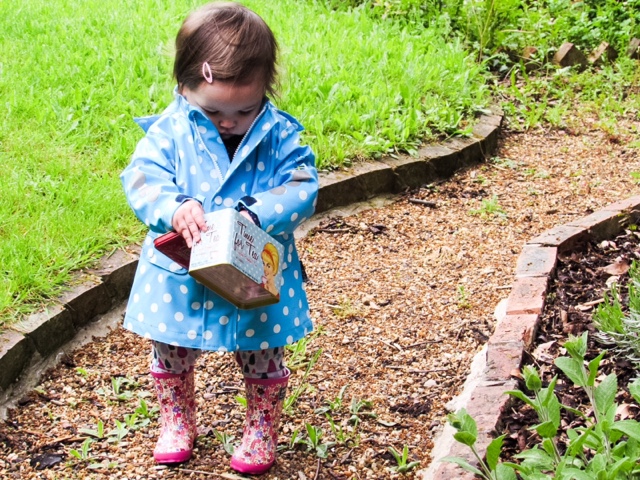
- Age-Appropriate Plants: Select plants that can withstand some degree of curious handling. Hardy, resilient flowers and vegetables are excellent choices. Consider growing easy-to-care-for herbs like mint or chamomile.
Engaging Activities for Toddler Garden Play
The possibilities for garden play with toddlers are virtually endless. Here are some ideas categorized by developmental benefit:

I. Sensory Exploration & Discovery:
-
Texture Hunt: Create a sensory bin filled with soil, sand, leaves, twigs, and other natural materials. Let your toddler explore the different textures, using their hands and fingers to investigate. This fosters fine motor skill development and enhances tactile awareness.
-
Nature Collages: Gather various natural items like leaves, flowers, twigs, and pebbles. Provide glue and paper, allowing your toddler to create their own nature-inspired artwork. This encourages creativity and artistic expression.
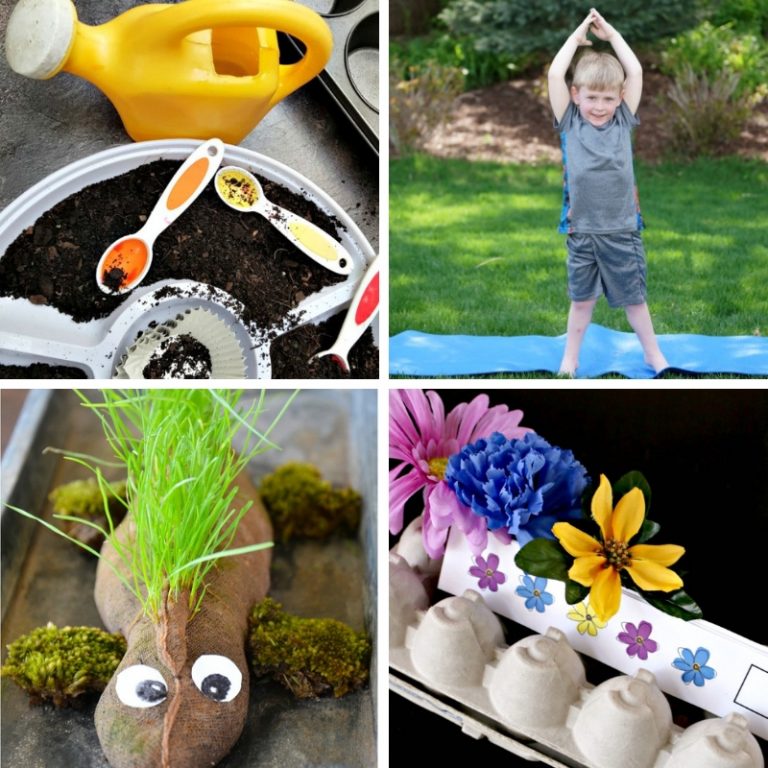
-
Mud Kitchen: A designated mud kitchen area with pots, pans, spoons, and water can provide hours of entertainment. Toddlers can mix mud, add water, and experiment with different textures and consistencies, developing their understanding of cause and effect.
-
Smell & Touch Garden Walk: Take a guided walk through the garden, focusing on the different smells and textures of the plants. Describe the scents and encourage your toddler to touch the leaves, petals, and stems (while always supervising). This cultivates language development and appreciation for the diversity of nature.
II. Motor Skills & Physical Activity:
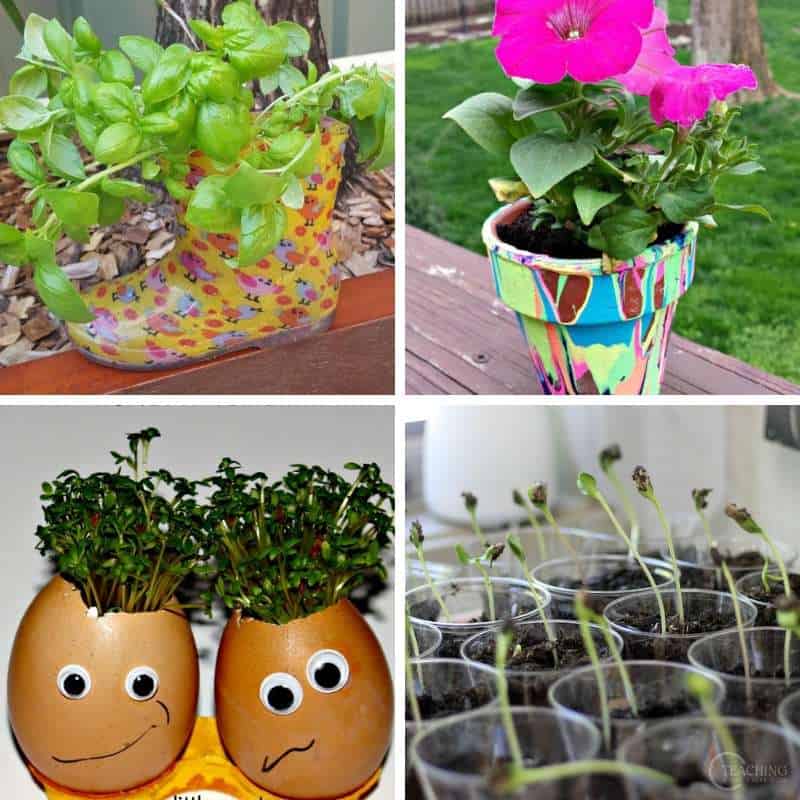
-
Watering Can Fun: Give your toddler a small, lightweight watering can to help water the plants. This improves their hand-eye coordination and strengthens their arm muscles.
-
Wheelbarrow Rides: If appropriate, use a wheelbarrow to transport gardening supplies or take your toddler for a ride around the garden. This enhances their balance and gross motor skills.
-
Bug Hunting: Provide nets and magnifying glasses for your toddler to explore the garden's insect inhabitants. This promotes scientific curiosity and observation skills. Remember to emphasize gentle handling of insects and respect for their habitat.
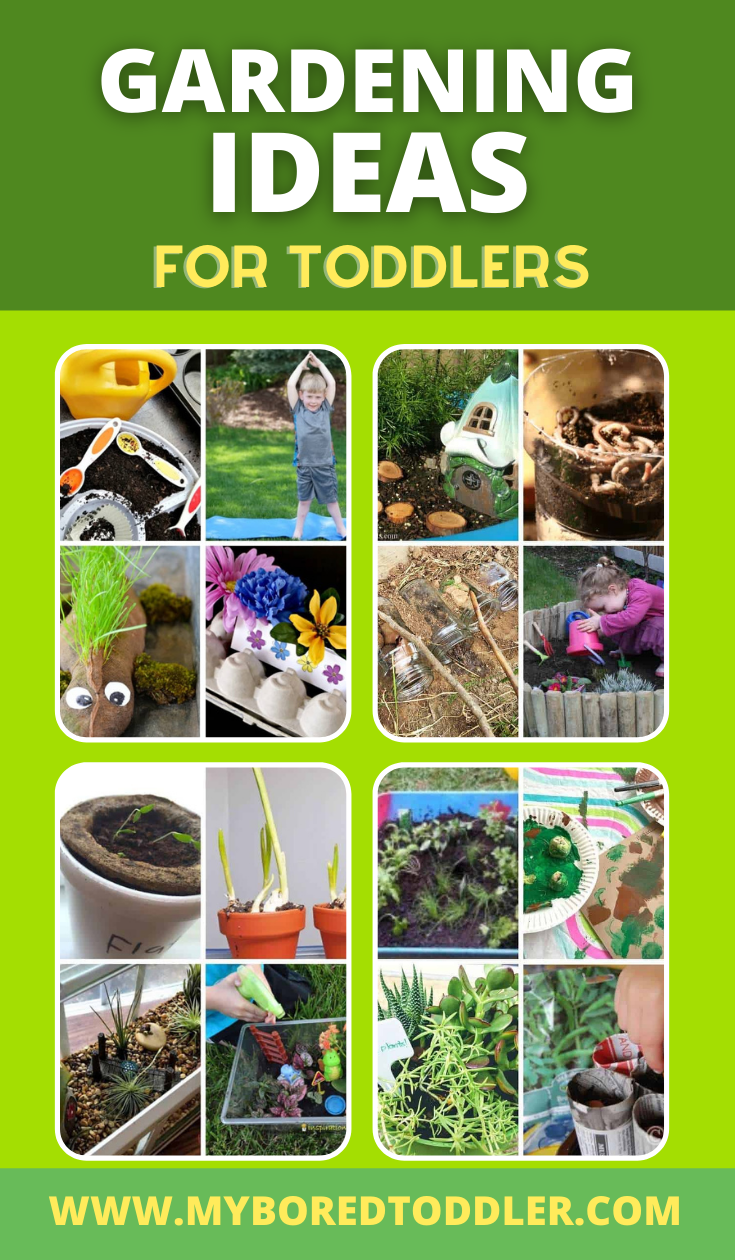
- Nature Obstacle Course: Create a simple obstacle course using natural elements like stepping stones, logs (secured safely), and tunnels formed with branches. This develops coordination, balance, and problem-solving skills.
III. Cognitive Development & Learning:
- Plant Growth Observation: Plant fast-growing seeds, such as sunflowers or beans, and track their growth together. This fosters patience, observation skills, and an understanding of the life cycle.
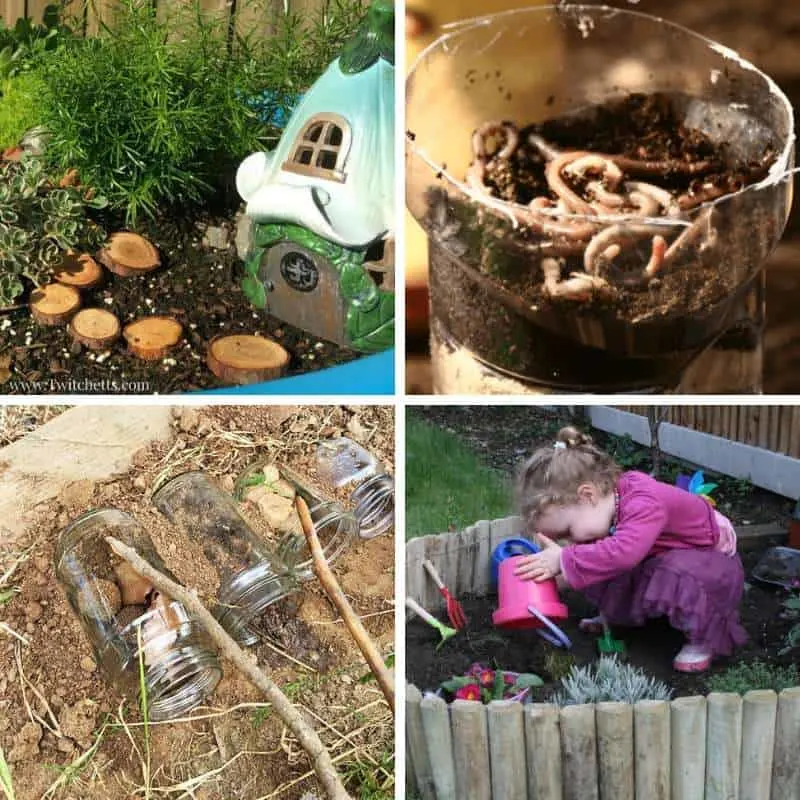
-
Gardening Tools for Toddlers: Invest in child-safe gardening tools, like small shovels and rakes. Allow your toddler to participate in simple gardening tasks like loosening the soil or weeding (under close supervision). This enhances their motor skills and sense of accomplishment.
-
Color & Shape Recognition: Use the garden as a natural learning environment to identify different colors and shapes of flowers, leaves, and fruits. This strengthens their cognitive development and expands their vocabulary.
-
Storytelling & Imagination: Use the garden as a backdrop for storytelling. Encourage your toddler to create their own stories based on the plants, animals, and objects they see around them. This nurtures their imagination and narrative skills.

IV. Social & Emotional Development:
-
Gardening with Friends: Arrange playdates in the garden, allowing your toddler to interact with other children while engaging in gardening activities. This enhances their social skills and communication abilities.
-
Responsibility & Caregiving: Assign your toddler small responsibilities, like watering a specific plant or collecting fallen leaves. This helps them develop a sense of responsibility and care for the environment.
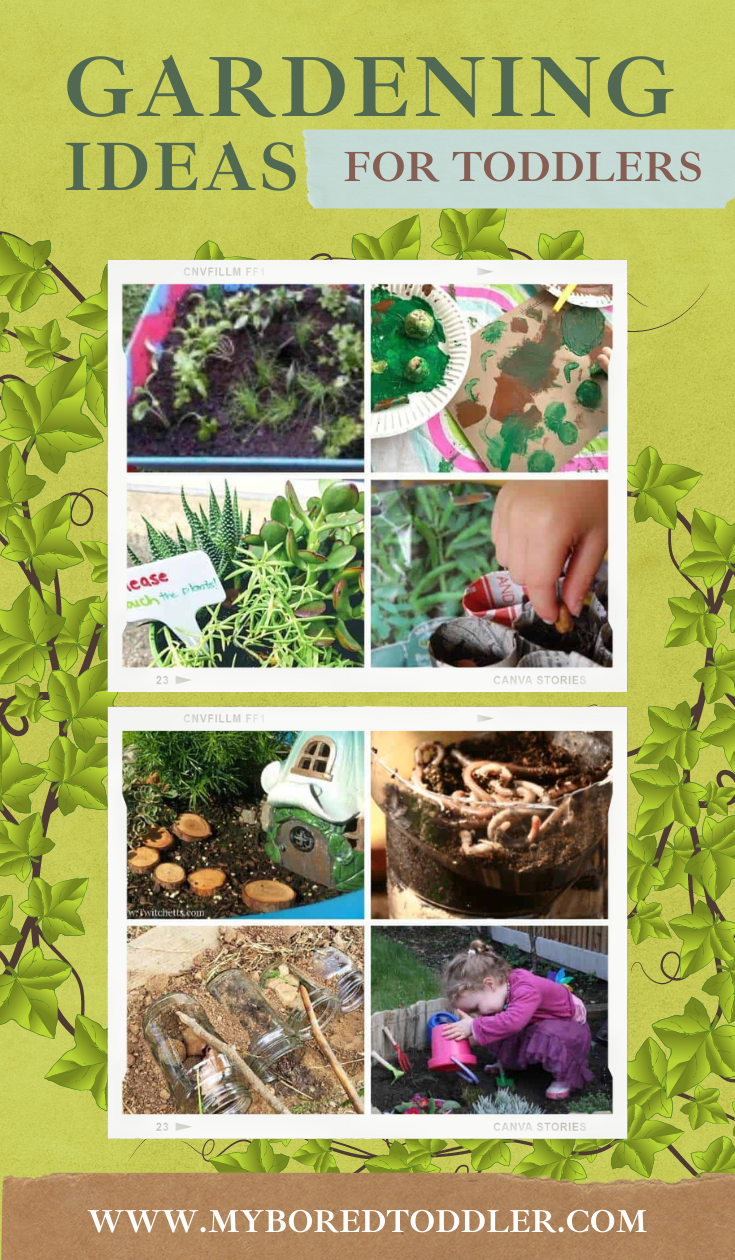
- Nature Appreciation: Spend time simply enjoying the beauty of the garden together. Point out interesting features, discuss the different plants, and encourage your toddler to appreciate the wonders of nature. This cultivates a lifelong love for the outdoors and environmental consciousness.
Safety Precautions:
While engaging in these activities, always prioritize safety. Supervise your toddler closely at all times, ensuring they don't ingest any plants, touch hazardous tools, or engage in activities beyond their physical abilities. Apply sunscreen regularly and keep them hydrated.
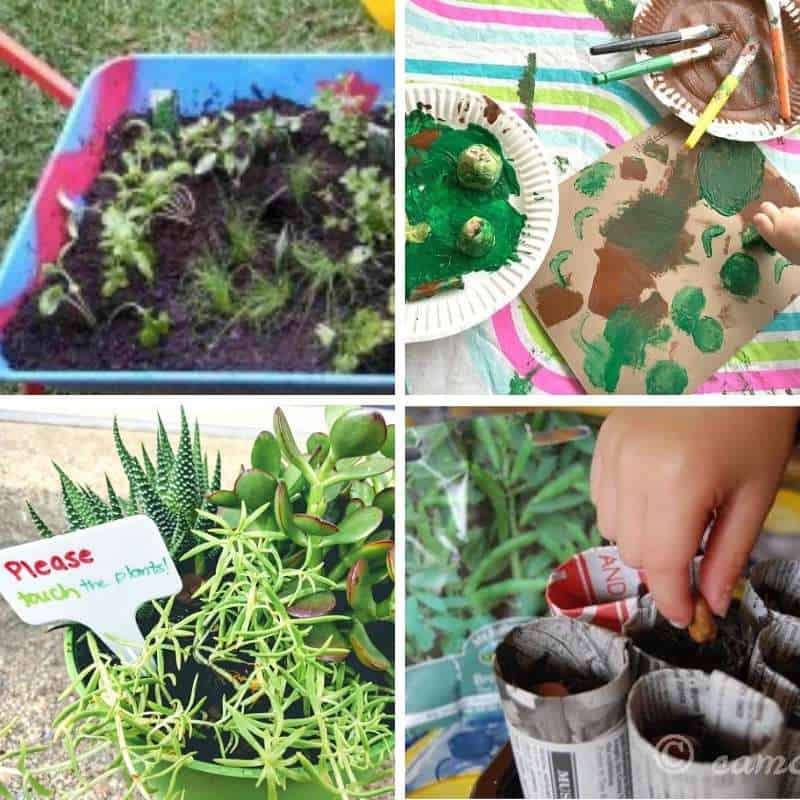
Remember: The goal is to foster a positive and engaging experience for your toddler, instilling a love for nature and encouraging their exploration and learning in a safe and supportive environment. Adapt activities to your toddler's individual abilities and interests, celebrating their achievements along the way.
Beyond the Activities: Creating Lasting Memories
The real magic of toddler garden play lies not just in the specific activities, but in the shared experience. These moments spent together in the garden, nurturing plants, exploring nature, and simply enjoying the beauty around you, create lasting memories and build a strong bond between parent and child. Capture these precious moments through photos or videos; they will become cherished reminders of a time spent learning, growing, and playing together in the magical world of a garden.

Embrace the mess, celebrate the discoveries, and enjoy the incredible journey of nurturing your toddler's love for the natural world. Watch as their playful exploration blossoms into a deeper appreciation for the wonders of nature, a gift that will continue to enrich their lives for years to come.
Toddler Garden Fun: Playtime Blooms!
The vibrant world of a garden offers a wealth of sensory experiences and learning opportunities for toddlers. More than just a pretty place to look at, a garden is a dynamic, interactive environment brimming with possibilities for play, exploration, and development. This article delves into a wide range of toddler garden activities designed to foster creativity, physical development, and a connection with nature. We’ll explore everything from simple sensory explorations to more structured play ideas, ensuring that your little one’s time in the garden is both fun and enriching.
The Importance of Nature Play for Toddlers
Before diving into specific activities, it's crucial to understand why nature play is so beneficial for toddlers. Exposure to the natural world offers a multitude of developmental advantages:
-
Sensory Stimulation: Gardens provide a feast for the senses. The soft touch of petals, the earthy smell of soil, the vibrant colors of flowers, the buzzing of bees – these sensory experiences stimulate brain development and help toddlers learn about the world around them.
-
Physical Development: Gardening activities, even simple ones, encourage gross motor skills like crawling, walking, running, and reaching. They also develop fine motor skills through tasks like digging, planting, and watering.
-
Cognitive Development: Exploring a garden sparks curiosity and encourages questioning. Toddlers learn about growth, life cycles, and the interconnectedness of nature. They begin to understand cause and effect, for example, how watering plants helps them grow.
-
Emotional Development: Spending time outdoors reduces stress and promotes a sense of calm. The beauty of nature has a soothing effect, and caring for plants fosters a sense of responsibility and nurturing.
-
Social Development: Gardening can be a social activity, whether it's working alongside your toddler or engaging with other children in a shared garden space. It encourages cooperation and sharing.
Sensory Exploration Activities: Engaging the Senses
These activities focus on engaging your toddler's senses through direct interaction with the garden environment:
-
Mud Kitchen: Create a designated mud kitchen area with bowls, spoons, cups, and other safe utensils. Let your toddler explore the texture of mud, mix it with water, and create their own mud pies. Supervision is key here to ensure safe handling of tools and materials.
-
Texture Walk: Create a sensory path using different materials found in the garden. This could include grass, stones, wood chips, leaves, and even flower petals. Have your toddler walk along the path, describing the different textures they feel under their feet.
-
Flower Power: Collect different flowers and let your toddler explore their colors, shapes, and textures. They can create flower arrangements, rub petals on paper to create prints, or simply smell the fragrant blooms. Ensure that all flowers used are non-toxic.
-
Water Play: Set up a water table or a shallow container filled with water. Provide cups, spoons, and small containers for pouring and scooping. This is a great activity for developing fine motor skills and understanding concepts like volume and capacity. Always supervise water play closely.
Active Play and Exploration: Getting Moving
These activities encourage physical activity and exploration within the garden setting:
- Nature Scavenger Hunt: Create a list of items for your toddler to find in the garden, such as a specific leaf, a smooth stone, a red flower, or a fluffy seed head. This encourages observation skills and promotes movement as they search for the items.

-
Obstacle Course: Use natural elements in your garden to create a simple obstacle course. This could involve stepping stones, crawling under branches, and walking around plants. Ensure the course is safe and age-appropriate.
-
Bug Hunt: With adult supervision, encourage your toddler to search for insects and other small creatures in the garden. Use magnifying glasses to observe them closely, but always emphasize gentle handling and respect for nature. Teach your child about safe insect handling and avoiding venomous creatures.
-
Wheelbarrow Rides: Give your toddler a ride in a wheelbarrow through the garden, making it a fun way to cover more ground and experience the garden from a different perspective.

Creative and Imaginative Play: Fostering Creativity
These activities encourage imaginative play and creative expression:
- Garden Art: Use natural materials found in the garden – leaves, twigs, flowers, stones – to create art. Toddlers can make collages, stick figures, or simply arrange the materials in patterns.

-
Storytelling: Use the garden as a backdrop for storytelling. Let your toddler create their own stories about the plants, animals, and other elements they see around them.
-
Fairy Garden: Create a miniature fairy garden using small pots, figurines, and natural materials. This encourages imaginative play and lets your toddler create their own magical world.
-
Nature Collages: Collect leaves, flowers, and other natural materials and use them to create collages on paper or cardboard. This activity develops fine motor skills and allows for creative expression.

Planting and Growing: Nurturing and Responsibility
These activities introduce toddlers to the concept of planting and caring for plants:
- Planting Seeds: Plant easy-to-grow seeds like sunflowers or beans. Let your toddler help with the process of planting the seeds and watering them. This fosters a sense of responsibility and allows them to witness the miracle of growth.

-
Watering Plants: Give your toddler a small watering can and let them help water the plants in the garden. This is a great way to develop fine motor skills and teach them about the importance of caring for living things.
-
Weeding: Introduce your toddler to the concept of weeding by helping them gently pull out small weeds. This is a simple task that teaches them about maintaining the garden. Ensure you supervise closely to prevent accidental damage to desirable plants.
-
Harvesting: If you have a vegetable garden, let your toddler help harvest small vegetables like strawberries or radishes. This allows them to see the results of their care and enjoy the fruits (or vegetables) of their labor.

Safety Considerations in the Toddler Garden
Safety is paramount when engaging toddlers in garden activities. Here are some essential safety measures:
- Supervision: Always supervise toddlers closely when they are playing in the garden.

-
Non-Toxic Plants: Ensure all plants in your garden are non-toxic and safe for toddlers to touch.
-
Insect Repellent: Use insect repellent appropriate for toddlers to protect them from insect bites.
-
Sunscreen: Apply sunscreen regularly to protect their skin from the sun.

-
Sharp Objects: Keep sharp tools and objects out of reach of toddlers.
-
Poisonous Plants: Remove or fence off any poisonous plants from your garden.
-
Allergies: Be aware of any allergies your toddler may have and take appropriate precautions.

Adapting Activities for Different Ages and Abilities
The activities described above can be adapted to suit the individual needs and abilities of your toddler. For younger toddlers, you might focus on simpler activities like sensory exploration. Older toddlers can participate in more complex activities like planting seeds and weeding. Always ensure that the activities are age-appropriate and challenging yet achievable for your child.
Conclusion: Growing Together in the Garden

Toddler garden activities are a fantastic way to promote development, foster a connection with nature, and create lasting memories. By engaging your toddler in age-appropriate activities, you can nurture their curiosity, creativity, and love for the natural world. Remember to prioritize safety and tailor the activities to your child's individual abilities and interests. The joy of watching your little one explore, discover, and grow alongside the plants in your garden is truly rewarding. Let the playtime blooms!



